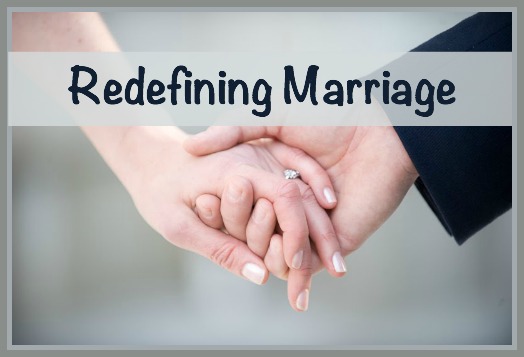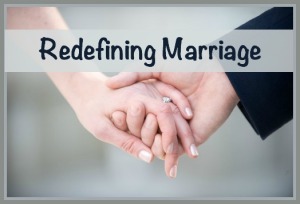Public Discourse recently published a very important essay titled “Breaking the Silence,” in which Janna Darnelle wrote with heartbreaking candor of what she and her children have suffered since her ex-husband abandoned their marriage, married another man under state law, and obtained joint custody of their children.
When Darnelle’s essay was published, I had just finished reading Anthony Esolen’s new book Defending Marriage: Twelve Arguments for Sanity. As I read her essay, I realized that her story encapsulated nearly every one of the book’s arguments.
Anthony Esolen is well-known to readers of Public Discourse, and his writings adorn many other websites and publications. He teaches literature at Providence College, has translated Dante’s Divine Comedy and other medieval works, and writes with a master’s ease of Shakespeare, Spenser, Tolkien, Orwell, and other authors in this book. And he writes with exceptional beauty, in prose both simple and elegant. Esolen’s limpid style, the fine clarity of his moral reasoning, and his passionate devotion to the essential goodness of marriage and the family give his twelve arguments tremendous persuasive force.
Yet it would be easy for even sympathetic readers of Esolen’s book to come away unpersuaded, if they talk themselves into believing that his arguments are purely speculative. The institution of marriage is already gravely damaged, thanks to unilateral “no-fault” divorce, the contraceptive mentality and the abortion culture, and the advance of the promiscuous “hook-up” culture. The full impact of the redefinition of marriage to include same-sex couples has not yet been felt, because the campaign to persuade the Supreme Court to foist it on the whole country has yet to succeed (though yesterday the Court took an unfortunate step in that direction). So it is still possible to lull oneself into believing that the final destruction and remaking of marriage won’t do much harm to people who remain devoted to the truth about what marriage really is.
Janna Darnelle’s story should be enough to wake anyone from the pleasant dream that all may still be well if same-sex marriage is nationalized. She is already living through some of the direst consequences of which Esolen warns. They happened to her and her family in the most immediate way, but those consequences await us all.
The Consequences of Marriage Redefinition
First, as Esolen shows, the redefinition of marriage means the establishment of the sexual revolution as the nomos, the law of the place, in our culture and polity. All of “mankind’s long history of meditation on the difficulties of love,” in this new order of the ages, is “consigned to oblivion,” and replaced with the principle that sexual gratification is its own justification. Chastity, purity, modesty, and the demand that we honor these qualities in one another—all these become impossible to uphold.
As the late William F. Buckley, Jr. was fond of saying, “Who says A must say B.” He who says that a man can marry a man, or a woman marry a woman, says that our law and culture will honor and uphold partnerships in which fidelity, permanence, and devotion to the bearing and rearing of children are no essential feature of the relationship between the partners. He who says that is a “marriage” necessarily says that chastity is no longer intelligible as a moral norm binding on anyone. As Esolen puts it, “you cannot say to John and Mary, ‘You two must wait till marriage,’ while saying to Alan and Steve, ‘You two can go right ahead.’ What can chastity or purity even mean, once you have smiled at sodomy?”
Who says A must say B. Those who choose this defenestration of chastity necessarily obliterate every moral alternative to the “radically individualistic” view that “our sexual powers are for ourselves alone.” This in turn promises the estrangement of young men and young women from each other. They may bring their bodies together, but their souls will remain apart. “The sexual revolution is essentially a lonely one. . . . Loneliness is its brick and mortar.” In this moral wasteland, how do girls and boys learn what it means to be women and men?
The fallout from the destruction and redefinition of marriage spreads still more widely, even beyond the immediate territory of the family. Deep friendship between members of the same sex is now in grave danger. To show us why, Esolen asks us to imagine a world in which the incest taboo is erased (and that is a world that may not be far off). In such a place, “You see a father hugging his teenage daughter as she leaves the car to go to school. The possibility flashes before your mind. The language has changed, and the individual can do nothing about it.”
So too, in the world that is rapidly embracing and recognizing homosexual relationships as normal and normative, the space for deep and meaningful male-male or female-female friendships among the young is rapidly shrinking to the vanishing point. “The stigma against sodomy,” Esolen rightly notes, “cleared away ample space for an emotionally powerful friendship that did not involve sexual intercourse, exactly as the stigma against incest allows for the physical and emotional freedom of a family.”
Add, then, the estrangement of boys from boys and girls from girls, in a world in which intimacy always raises the suspicion of sexual desire. This is a bleak horizon to contemplate: plenty of sex, mostly empty and unrewarding, with much less love and friendship. Where do we go to get our taboos back?
A Truly Slippery Slope
Who says A must say B. If the slope we are on is truly slippery—and that is doubtless the case—some things are still lower on the slope, like incest, but others are actually uphill of us. These are consequences we have already embraced in principle and that only wait on practice to catch up. The acceptance of polygamy is one of these “uphill” consequences. As Esolen shows, it is “much easier to justify than are homosexual relations.” But so what if polygamy is irresistible? Can’t those who don’t wish it for themselves—like those who do not wish to enter same-sex marriages—just go on their merry way, living and letting live?
No, they can’t. “For starters, [polygamy] would render marriage porous as a matter of principle. It would . . . turn every married person into an eligible bachelor or bachelorette.” And even for those personally strong enough to keep the faith, the world they inhabit will have utterly changed. In one of his more memorable images, Esolen remarks that some folks may want to stay clothed at the “clothing-optional” beach, but make no mistake: it’s now a nude beach. A nude public beach. And there’s nowhere else to live.
Also “uphill” of us, once marriage is redefined to include same-sex couples, is our contemporary divorce regime. Rampant, widely accepted no-fault divorce paved the way for the same-sex marriage campaign and would now be fixed in place, with no hope of reform, if that campaign is finally successful. By their nature, same-sex relationships have no intrinsic reason to be permanent, and permanently faithful. Why should the law make it difficult for any couple—or “throuple,” or quartet—to part ways, once marriage no longer means the comprehensive union of a man and a woman, cleaving together to be mother and father to any children they generate?
And speaking of children . . . well, who says A must say B. Try teaching children who live on the nude beach that clothing should be worn. In the world where marriage is redefined, “we will have a culture whose moral structure is abusive to children.” Already in too many of our schools, where teachers and school officials usurp the authority of parents, the learning of boys to be men and of girls to be women is “short-circuited by a forced precocity in matters of sex.” How could it be otherwise? The revolution relies, by an iron law of necessity, on propaganda. It is no accident that in Plato’s Republic Socrates recommends that if we wish to remake a society entirely, we must banish the adults and take over the education of their children.
And what will we teach them, both in school and, tragically, in a great many homes? “The boy doesn’t need a father, because sex doesn’t matter; but his mother needs a ‘wife’ and can’t possibly be expected to take a man, because in this case sex matters more than everything else in the world.” Sometimes, he who says A gets to say B and not-B simultaneously. Perhaps we can repeal the law of non-contradiction as well as the laws of nature.
Ruthlessly Enforcing the New Normal
Only ruthless state power—legislative and judicial, peaceful and armed, educational and coercive—can achieve this repeal of civilization’s hard-won wisdom. Hearts must be broken, families torn apart, children treated alternately as prized commodities and inconvenient nuisances. (Just ask Janna Darnelle.) And the almighty state will enforce the new normal:
What the State essentially does, when it requires us to be parties to the lie that a man can marry a man, is to deny the anterior reality of marriage itself. It says, “Marriage is what we say it shall be,” and that implies, “Families are what we say they are,” and that implies, “There are no zones of natural authority outside the supervision and regulation and management of the State.”
In the two bravest chapters of this book, Esolen argues, first, that “we should not normalize an abnormal behavior”—homosexual conduct—and second, that “to celebrate an abnormal behavior makes things worse, not better, for those inclined to engage in it.” The best thing we can do for young people who experience same-sex desires is not to encourage those desires but help them to resist them if they can, as many will successfully do as they mature. As for those who enter fully into the homosexual life as adults, Esolen writes: “They deserve our patience and our compassion. But the tolerance on our part requires from them an acknowledgement that we indeed do have something considerable to tolerate. From them, then, we rightly require discretion.”
The author of this fine book can expect to be the recipient of much abuse for having written it. In a country in which two men have the temerity to feel aggrieved that they cannot “marry” one another and continue to receive communion in a Catholic church, Anthony Esolen’s plea for their “discretion” is sure to provoke howls of outrage. But in his final chapter, “The Beauty of the Country of Marriage,” Esolen paints a moving portrait of what we are throwing away, and what very different country awaits us, just over the horizon. As Janna Darnelle can attest, that country is now frighteningly nearby.
 Listen Online
Listen Online Watch Online
Watch Online Find a Station in Your Area
Find a Station in Your Area










 Listen Now
Listen Now Watch Online
Watch Online
